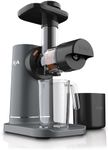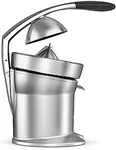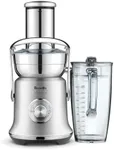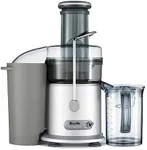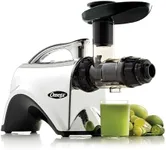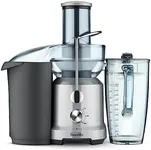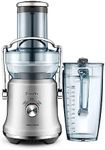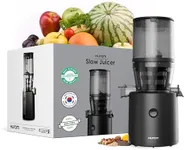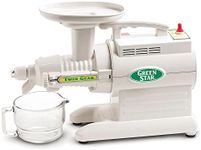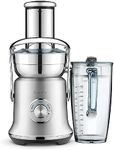Buying Guide for the Best Juicers
Choosing the right juicer can make a big difference in how often you use it and how much you enjoy fresh juice at home. The best juicer for you depends on what types of fruits and vegetables you want to juice, how much time you want to spend on preparation and cleaning, and how important juice quality is to you. Understanding the main features and specifications will help you find a juicer that fits your lifestyle and needs.Type of JuicerThere are mainly two types of juicers: centrifugal and masticating (sometimes called slow or cold press juicers). Centrifugal juicers use fast-spinning blades to extract juice quickly, making them great for people who want juice in a hurry and mostly use softer fruits and vegetables. Masticating juicers crush and press produce at a slower speed, which usually results in higher juice yield and better nutrient retention, especially with leafy greens and harder vegetables. If you want quick results and easy cleanup, centrifugal might be best. If you care more about juice quality and versatility, consider a masticating juicer.
Juice YieldJuice yield refers to how much juice you get from a given amount of produce. Higher yield means less waste and more juice for your money. Masticating juicers generally provide a higher yield, especially with leafy greens and wheatgrass, while centrifugal juicers may leave wetter pulp. If you plan to juice a lot of greens or want to maximize your produce, look for a juicer known for high yield.
Ease of CleaningCleaning can be a big factor in how often you use your juicer. Some models have many parts and small crevices that can be hard to clean, while others are designed for quick disassembly and rinsing. If you want to juice daily or don’t like spending time on cleanup, look for a juicer with fewer parts and dishwasher-safe components.
Feed Chute SizeThe feed chute is the opening where you insert fruits and vegetables. A larger feed chute allows you to put in bigger pieces or even whole fruits, reducing prep time. Smaller chutes require more chopping and preparation. If you value convenience and speed, a wide feed chute can save you time.
Noise LevelJuicers can vary in how loud they are. Centrifugal juicers tend to be noisier due to their high-speed motors, while masticating juicers are generally quieter. If you plan to juice early in the morning or in a shared space, a quieter juicer might be more suitable.
Pulp ControlSome juicers let you adjust how much pulp ends up in your juice, while others have a fixed setting. If you have a strong preference for pulp-free or pulpy juice, look for a model that offers adjustable pulp control or comes with different filters.
Size and StorageJuicers come in various sizes, from compact models to larger machines that take up more counter space. If you have limited kitchen space or plan to store your juicer in a cabinet, consider the size and weight. A smaller, lighter juicer is easier to move and store, while a larger one may be more stable and have a bigger capacity.

